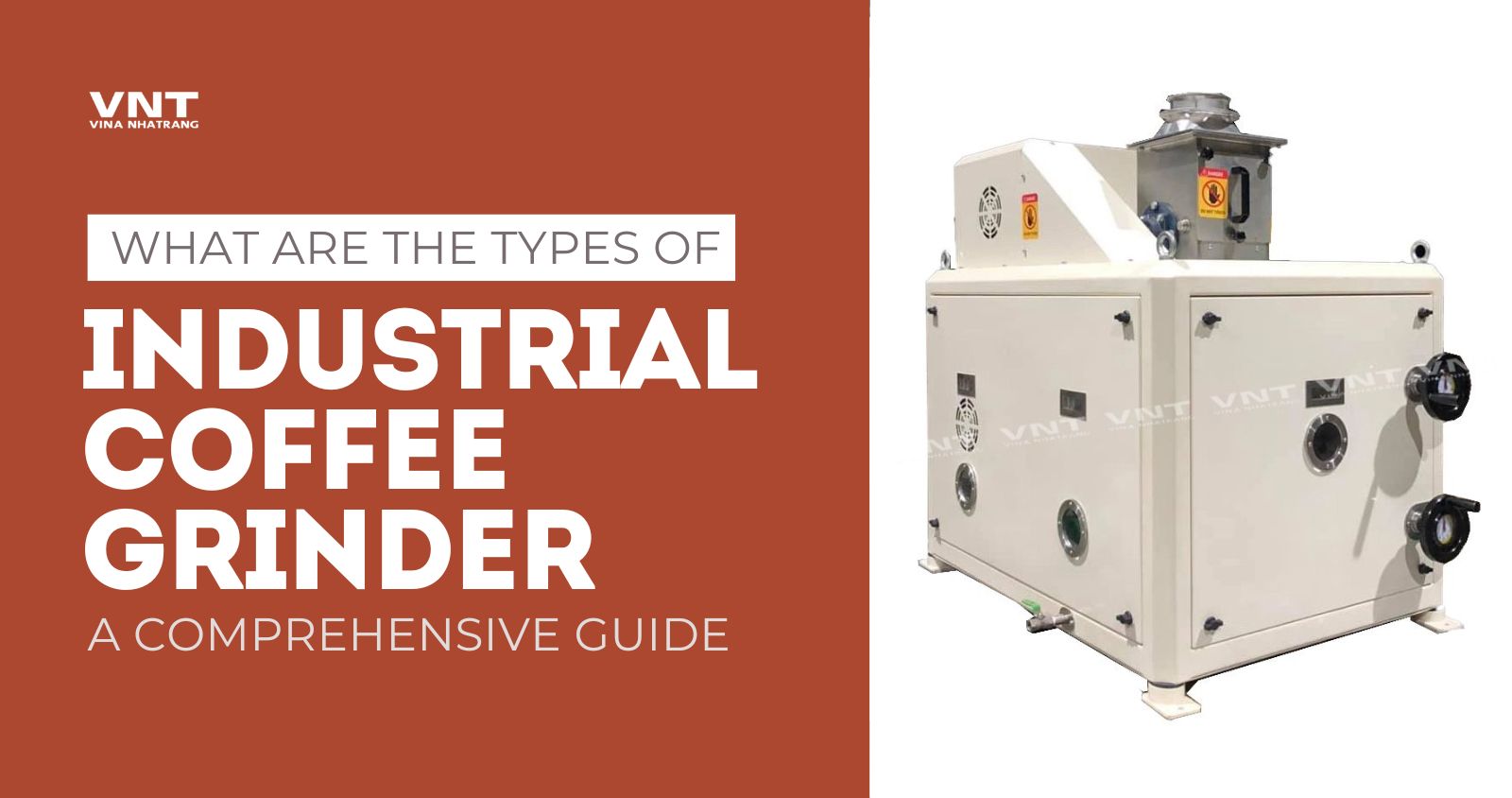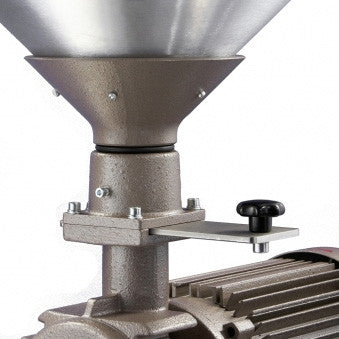Find the Best Deals on Industrial Coffee Grinder Brands Right Now
Find the Best Deals on Industrial Coffee Grinder Brands Right Now
Blog Article
How to Select the Perfect Industrial Coffee Mill for Your Business
Choosing the suitable industrial coffee grinder for your service is a multifaceted decision that requires careful consideration of a number of crucial variables. In addition, comprehending the various types of mills available can considerably affect your functional performance.
Assess Your Grinding Needs
When picking a commercial coffee mill, one must initially examine their grinding requirements to make sure optimum efficiency and uniformity. This first assessment includes recognizing the quantity of coffee to be refined daily, in addition to the preferred work dimension for different brewing approaches. A high-capacity grinder might be needed for businesses offering big quantities of coffee, while smaller procedures could locate a more small design enough.
Furthermore, it is vital to think about the sorts of coffee beans being made use of, as different beans may call for specific grinding strategies to achieve the most effective taste account. For instance, oily beans may require a mill designed to manage such features without clumping or overheating.
Specialized coffee organizations typically require specific work dimensions to improve removal and taste, making it important to select a mill that can provide consistent results. Reviewing the readily available space and electrical demands will certainly aid in choosing a mill that fits perfectly right into your operational operations.
Understand Grinder Types
Comprehending the different sorts of industrial coffee grinders is crucial for making a notified choice that meets details operational needs. There are mostly 2 categories of grinders: blade mills and burr mills.
Blade grinders use rotating blades to chop the coffee beans, leading to an irregular work dimension - Industrial Coffee Grinder. While they may be a lot more cost effective, they are frequently not ideal for commercial applications where precision is vital
On the other hand, burr grinders give an extra uniform grind by squashing the beans in between two surface areas. They can be further categorized into level burr and conelike burr grinders. Apartment burr mills use a regular work dimension and are normally favored for coffee preparation, while cone-shaped burr mills are versatile and can take care of a range of mixture methods, from coffee to French press.
When selecting a mill, think about the certain requirements of your business, including desired work consistency, production volume, and the sorts of coffee drinks you prepare to use - Industrial Coffee Grinder. Each mill type has its benefits and restrictions, so understanding these nuances enables educated decision-making that straightens with functional objectives
Evaluate Work Size Consistency
Accomplishing work dimension uniformity is necessary for generating high-grade coffee, as variants in particle size can dramatically impact removal and flavor. When selecting a commercial coffee mill, it is crucial to assess how well the device maintains uniformity in work size across various batches. Inconsistent work dimensions can lead to uneven removal, causing a cup that might taste extremely bitter or weak.
To analyze work size uniformity, think about grinders with attributes such as flexible grind settings and high-quality burrs. Burr mills, in specific, succeed in generating uniform fragment dimensions compared to blade mills. The product and shape of the burrs play an essential function, with stainless-steel and ceramic choices offering sturdiness and precision.

Take Into Consideration Manufacturing Ability
In the hectic globe of coffee production, taking into consideration manufacturing capacity is critical for companies aiming to satisfy need without giving up top quality. The production ability of a commercial coffee mill straight affects a company's ability to meet orders successfully, take care of inventory, and react to changing market patterns.
When evaluating production capacity, it is important to examine the mill's output rate, typically determined in pounds per hour. This dimension must line up with your company's predicted sales quantity and development targets. For example, a café with a high turn over may call for a grinder that can process several hundred pounds daily, while a smaller sized operation may be adequate with a lower capability version.
Additionally, take into consideration the type of coffee being processed. Various beans and blends may impact grinding speed and performance, requiring a grinder with the ability of taking care of varied production needs. It's additionally worth factoring in the grinder's capability to preserve constant quality under high result problems, as any type of fluctuations can influence the final item.
Eventually, choosing a grinder that matches your company's manufacturing capacity will ensure you continue to be receptive and competitive to client assumptions.

Budget and Maintenance Elements
When evaluating the appropriate commercial coffee mill, budget plan and maintenance elements play a substantial duty in the total decision-making process. An initial investment in a top notch grinder can yield long-term benefits, however it's important to develop a clear spending plan that aligns with your organization's operational requirements. Think about both the acquisition price and prospective operational prices, such as have a peek at this website power intake and substitute components.
Upkeep is an additional critical aspect that can impact your budget plan. Industrial coffee grinders require regular maintenance to ensure optimal efficiency and long life. Examine the supplier's referrals for upkeep, including cleaning schedules and components substitute, as these will influence lasting functional expenses. Additionally, consider the schedule of solution and support, as reputable see page support can minimize downtime and fixing expenditures.

Buying a grinder that is sturdy yet simple to keep can save cash gradually. While lower-priced options might be tempting, they might sustain higher upkeep costs and minimized performance. Eventually, stabilizing initial expenses with lasting maintenance and functional efficiency will direct you to the best option for your organization's coffee grinding needs.
Final Thought
Picking the optimal commercial coffee grinder demands a detailed assessment of grinding demands, mill types, grind size uniformity, manufacturing capacity, and financial considerations. By focusing on these variables, businesses can guarantee the purchase of a reliable, efficient grinder that satisfies details functional needs. A well-chosen grinder not only enhances the high quality of the coffee created but likewise adds to the total success and productivity of the venture. Long-term performance and maintenance ease need to remain main to the decision-making process.
Specialty coffee organizations often require accurate work dimensions to improve extraction and taste, making it essential to select a grinder that can provide consistent outcomes. Flat burr grinders supply a regular work size and are generally favored for espresso prep work, while conelike burr grinders are versatile and can handle an array of brew methods, from espresso to French press.
When selecting an industrial coffee mill, it is critical to examine exactly how well the equipment preserves uniformity in work dimension throughout different sets. Burr grinders, in particular, excel in producing consistent particle dimensions compared to blade mills.Choosing the perfect commercial coffee grinder demands a comprehensive evaluation of grinding requirements, grinder kinds, grind size uniformity, manufacturing ability, and financial considerations.
Report this page